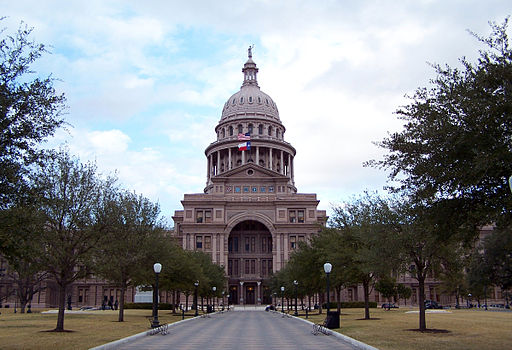The Texas State Legislature voted to send seven constitutional amendments to the Nov. 4 ballot last week (May 25 - May 31). One amendment would let judges deny bail for individuals accused of certain crimes, one would make changes to the state judiciary oversight commission and process, two would adjust the allocation of tax revenue, and three would authorize property tax exemptions.
Denial of Bail
SJR 5 would permit a judge to deny bail to people accused of certain crimes. The judge could only do so if there is convincing evidence that the accused individual would willfully not appear in court or that the release of the individual would endanger the safety of the public and the crime victim. Crimes for which an individual could be denied bail would be murder, capital murder, aggravated assault resulting in serious bodily injury to the victim or committed with a firearm, club, knife, or explosive, aggravated kidnapping, aggravated robbery, aggravated sexual assault, indecency with a child, and human trafficking.
SJR 5 is the third amendment placed on the ballot by state legislatures in 2025 that would permit the denial of bail for certain crimes. In May 2026, Alabama voters will decide on an amendment that would add discharging a weapon into an occupied building, railroad car, aircraft, automobile, or watercraft, and solicitation, attempt, or conspiracy to commit murder to the list of offenses for which a judge can deny bail. In November 2026, Tennessee voters will decide on an amendment that would modify the list of offenses for which a judge can deny bail to include terrorism, second-degree murder, aggravated rape of a child, grave torture, and any other offense for which a convicted individual could not be released prior to the expiration of at least 85% of their sentence.
State judiciary oversight
SJR 27 would make changes to judicial oversight in the state, including changes to:
- the composition of the 13-member state Commission on Judicial Conduct;
- the composition of the tribunal that reviews the commission's recommendations; and
- the authority and process for sanctioning and removing judges.
Currently, the commission is made up of 13 members: six judges, two lawyers, and five members of the public. The judges are appointed by the state supreme court, the lawyers are appointed by the State Bar of Texas, and the members of the public are appointed by the governor. The commission was created with the approval of Proposition 8 in 1965.
Revenue Allocation
SJR 59 would establish the Permanent Technical Institution Infrastructure Fund (Permanent Fund) and the Available Workforce Education Fund (Available Fund) as special funds in the state treasury outside of the General Revenue Fund to support the needs of the Texas Technical College System. The Permanent Fund would maintain the reserves from year to year to support the college system, and the Available Fund would be used at the discretion of the comptroller of public accounts. The fund would be used, among other purposes, to acquire land, construct buildings and improvements, acquire equipment and learning materials, and pay the balance on bonds and notes.
HJR 7 would allocate the first $1 billion of sales tax revenue, after revenue exceeds $46.5 billion, to the state water fund each year. It would also authorize the state legislature to adjust the amount allocated to the state water fund. To adjust the amount, a two-thirds vote from each chamber of the legislature would be required.
Property Tax Exemption Amendments
HJR 34 would allow the state legislature to create a property tax exemption for increases in a property's value resulting from the construction or installation of border security infrastructure, if the property is located in a county bordering Mexico. The amendment does not define what would qualify as border security infrastructure; instead, it permits the state legislature to set those definitions and requirements.
HJR 133 would authorize the state legislature to establish a homestead property tax exemption for the home of a surviving spouse of a veteran who died from a service-connected disease, if the spouse has not remarried. The state constitution already allows for such tax exemptions if the veteran is killed or fatally injured in battle or if the veteran is disabled due to their military service.
SJR 84 would permit the state legislature to provide a temporary homestead property tax exemption for residences when the owners have made improvements to the property due to damage from a fire.
The Texas state legislature is set to adjourn on June 2. Including the 17 amendments that are certified for the November ballot, 41 amendments have passed at least one chamber—the halfway point to certification.
A two-thirds vote is required from both the state House and Senate during one legislative session for the state legislature to place a constitutional amendment on the ballot. That amounts to a minimum of 100 votes in the state House and 21 votes in the state Senate, assuming no vacancies. In Texas, amendments do not require the governor's signature to be referred to the ballot.
Since the adoption of the Texas Constitution in 1876, Texans have decided on 711 ballot measures, all constitutional amendments. Voters approved 530 (74.5%) and defeated 181 (25.5%) measures.
See also: Texas Ballot Measures: Historical Ballot Measures Factbook



